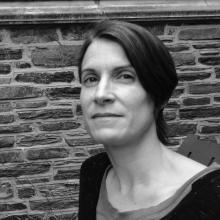What Is It
We are faced with decisions all the time in life. Normally, we think about the possible outcomes and choose a course of action that matches what we take to be of most value to us. However, one might think that some decisions—like whether or not to have a child—can so profoundly transform our lives that we cannot possibly know what the outcome will be like until it actually happens. Are these the kind of decisions in which our regular approach to decision-making becomes useless? Can life-changing decisions ever be made rationally? If not, can we still make good choices? John and Ken make some major decisions with Laurie Paul from UNC Chapel Hill, author of Transformative Experience.
Listening Notes
John and Ken begin the show by considering what might qualify as a transformative experience (TE), and John proposes that TEs are those that effect change at some fundamental level. Consider childbirth, for example: maybe even a woman can’t know what that’s like! Ken isn’t convinced and wonders why we can’t truly learn about the experience of childbearing from talking to others. John replies that that would only tell us about what the experience was like for them. In agreement, Ken says that if that’s right, and if choosing rationally means considering expected outcomes and their associated values, then it doesn’t seem possible for us to make decisions rationally. How do we and ought we to go about making such decisions, asks John?
They are joined by Laurie Paul, Professor of Philosophy at UNC Chapel Hill. Paul begins by speaking of how her own experience of having a child brought influenced her work on TEs. If we approach such an experience by asking who we are and want to become, and by thinking about how we’re going to live afterward, Paul argues, then we cannot make the decision rationally; but, perhaps there is a way if we reformulate how we make the decision.
Ken considers the case of parents making treatment decisions for deaf or autistic children. Paul’s response—that without drawing on personal experience, perhaps the decision is epistemically impossible—pushes John and Ken to bring into question the importance Paul places on experience. Ken suggests that he can know of his valuing certain things even without the relevant experience, and John adds that we ought to be able to use statistics to inform our decisions. Paul replies that she takes a “cognitively rich” approach to experience, binding it up with values, beliefs, attitudes, etc. People experience a massive change in their preferences.Audience calls and emails guide the discussion towards considering what we do with the potential TEs have to leave us with a sense of regret. Paul speaks of our capacity to allow these experiences to shape us as individuals, but concedes that there is no easy answer for when this fails. Replying to John’s question as to how a sense of duty or obligation changes things, the show concludes with Paul suggesting that perhaps in such cases those considerations trump the experience’s transformative aspects.
- Roving Philosophical Reporter (seek to 6:49): Shuka Kalantari discusses how transformative her own experience with childbirth has been, reflecting that it has changed her at an unexpected level. In speaking with therapist Ann Davidman, Kalantari also learns about the importance of being open to personal growth and transformative experiences. Davidman runs a 12-week clinic to help parents decide if having kids is right for them.



